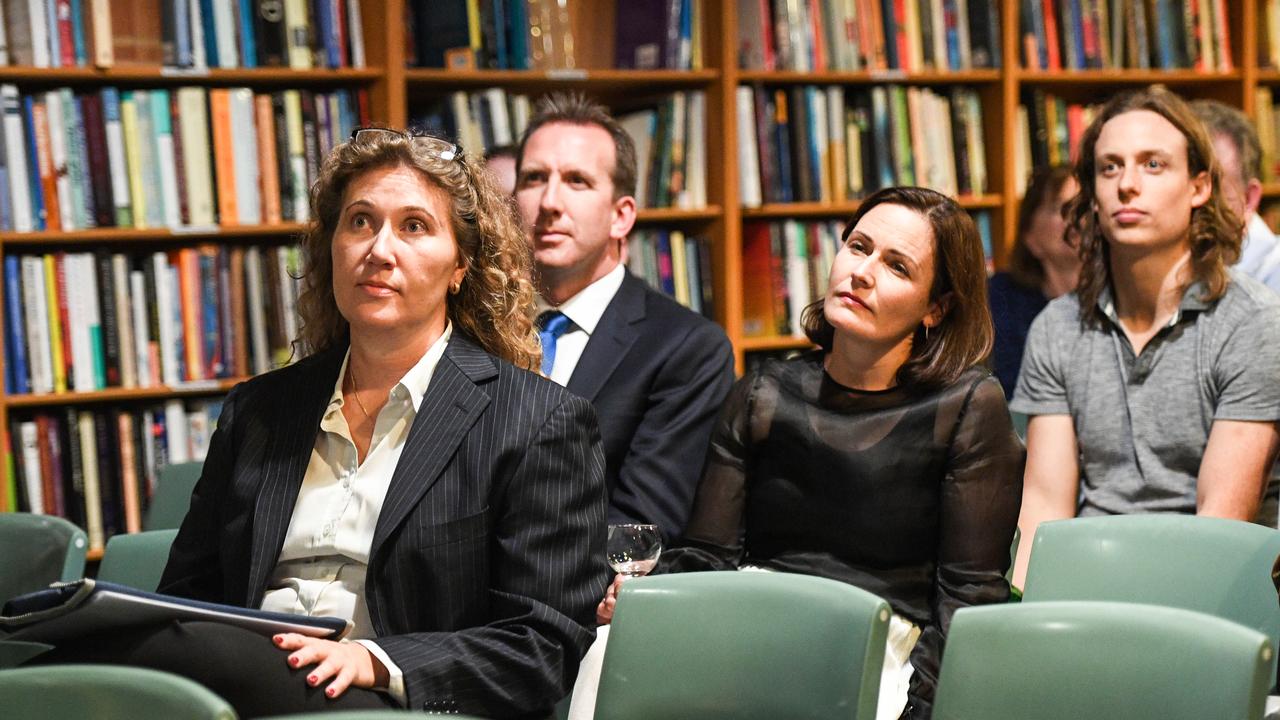Anthony Albanese is facing a perfect storm
The PM has a bold agenda but may struggle to deliver on his promises.
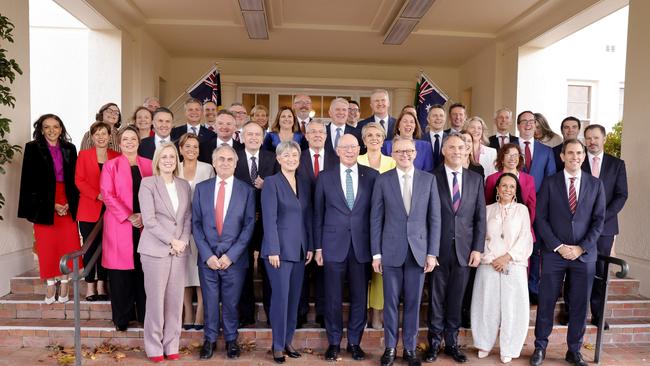
Anthony Albanese’s great expectations from opposition of May 2022 have met the grim reality of government in June 2022.
The twain have met and – in the words of new Treasurer Jim Chalmers – the meeting produced a “perfect storm”.
The newly minted Climate Change Minister, Chris Bowen, also faced an immediate storm – no literary allusion but a blast of polar air that dumped freezing conditions and snow on large parts of eastern Australia on the first day of winter – and had to declare there was no “immediate answer” to increases in the price and drastic shortage of gas.
For the Prime Minister and his Foreign Minister, Penny Wong, there has been a high-pressure storm from China into the Pacific which meant they have spent almost more time out of Australia on visits to Japan, Indonesia, Fiji and Samoa than in Canberra since being officially sworn in. Richard Marles, as Defence Minister and Acting Prime Minister, who will have acted as prime minister for more time in his first two weeks as deputy than Albanese did in his entire time as deputy to Kevin Rudd, has been a bulwark, committing to maintaining defence spending and the nuclear-powered submarine proposal under the AUKUS security pact between Australian, British and US.
These challenges to economic growth, the cost of living, energy security, national security and Indo-Pacific strategic relations all started within minutes of Albanese being sworn in and have multiplied and accelerated in just two weeks.
Albanese and his team, particularly Wong and Chalmers, have done well to react to immediate demands and crises in the first two weeks of the new Labor government and lived up to the new Prime Minister’s message to the first meeting in Canberra of his ALP caucus colleagues that he wouldn’t “waste a day”.
Labor has also worked on foundation political narratives to explain the dire reality, with the explanations for economic hard times ahead being a result of Coalition failures before the Covid-19 pandemic and the energy crisis facing business and families due to Scott Morrison and his predecessors not investing in renewable energy.
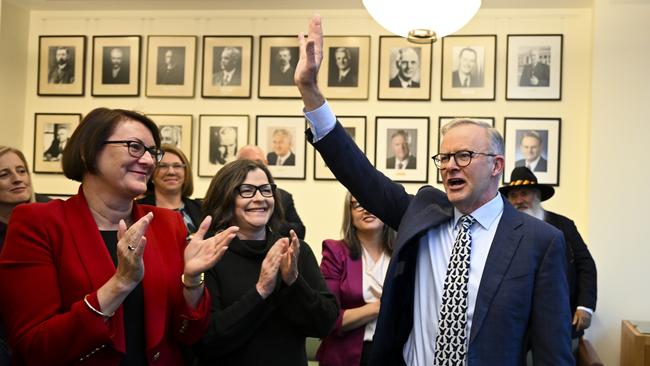
The first excuse for prospective difficult measures in Labor’s first federal budget, due in October, ignores the success of the Australian economy coming out of the pandemic, and the inability to control some factors; while the second excuse ignores the real narrative that the shortage of gas for the Australian domestic market, like the havoc in Europe, is because renewable energy sources can’t yet provide affordable dispatchable power to the grid.
In recognising the need for immediate action, Albanese also has acknowledged the need for longer-term plans and, having achieved an election victory with great expectations in 2022, has already set a target for a second win in 2025 after having dealt with grim reality.
“I’ve been in this building now for 26 years. I’ve had six at this end of the corridor (the government partyroom). I don’t intend going back (to the opposition partyroom),” he said.
His aim for 2025 is to be able to say that Labor has achieved cheaper childcare, ended the climate wars, introduced an anti-corruption commission, brought about more secure work and lifted wages, while also taking action on the cost of living, affordable housing and fee-free TAFE.
As well as the domestic policy agenda, Albanese already has set the pace on international and regional security and has strongly signalled a commitment to accepting the Uluru Statement from the Heart, an Indigenous voice and an Australian republic.
But he faces immense challenges in achieving any or all of this agenda because of global economic pressures, supply and staff shortages, security concerns, inflation and interest rate rises, continuing health threats and, perhaps most important politically, the expectations Labor has created for itself directly and indirectly.
Labor has blamed the cost-of-living spiral on the Coalition’s wasteful spending and expensive childcare, while the skyrocketing inflation (used in dramatic advertisements) was Morrison’s fault, wages going backwards was deliberate Coalition policy, rising interest rates and housing affordability were because of debt and a lack of policy, and hits to growth were because of failure on skills training. Covid vaccination delays and the lockdowns were brought about by fights with state leaders. Rising power and fuel prices were a failure of investment in renewable energy, the short-term payments and cuts in petrol excise expired after the election, and the National Disability Insurance Scheme needed to be protected because the Coalition claimed it was unsustainable.
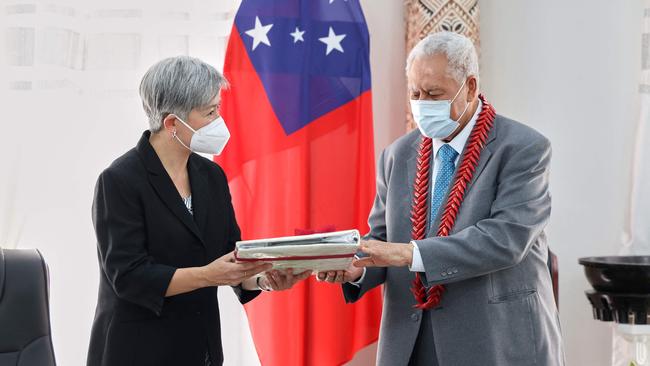
The political problem for Labor is not the extent of the veracity of the claims but that by claiming all of these problems were the fault of Coalition governments and that they would be better under Labor, Albanese is saying government is responsible for all these outcomes.
If, in opposition you blame the government for a failure of responsibility, then if you come to power you own the problem as well as the solution.
After more than six years campaigning, and promises during the 2022 election that wages will rise under Labor, this is a non-negotiable outcome for Albanese and Chalmers – meaning the rise will have to be faster than inflation so that there will be real wage rises for secure work with continuing low unemployment.
This is a subset of Labor’s promises to have an economy that works for people, not one people work for, and sits with the aims of lifting productivity and economic growth. Failure to achieve these ends will be dealt with brutally by an electorate told the conditions were the Coalition’s fault.
Along with Chalmers, new Workplace Relations Minister Tony Burke faces a huge task in negotiating with the unions, business and crossbench MPs and senators – he is also leader of the house – to land this most fundamental of Labor undertakings, as the ACTU sets out its agenda based on the belief that “productivity and profits are at record high levels, while workers are experiencing both real wage cuts and a cost-of-living crisis”.
While seeking to work together at Albanese’s proposed summit, the Business Council of Australia has a more cautious view.
The BCA’s position is: “Our economy is poised for a world-leading recovery but it hinges on our ability to sustainably drive investment, productivity and sustained stronger growth.”
BCA chief executive Jennifer Westacott also acknowledges what Labor plays down, saying: “Many of the global economic headwinds are outside our control and that’s why we need to double down on investment and drive productivity in Australia; this is how we get the economy to grow faster.”
Burke’s NSW right-wing and union background make him the best person in the Labor team to achieve any agreement but, like for another right-wing NSW workplace minister, Laurie Brereton, in the Hawke-Keating years, it may take a high toll.
On the wider economy, Chalmers has sought to play down the expectations of dramatic economic change and, since the morning he was sworn in, has been warning that the economy was worse than before the election and there was no easy or quick fix.
After the national accounts this week showed a higher than expected growth of 0.8 per cent in the March quarter but a slowing in annual growth, Chalmers said: “Consistent with what I’ve been telling you really, for some weeks now, there is no point tiptoeing around these serious economic challenges. There is no point mincing words about the sorts of conditions that we have inherited.”
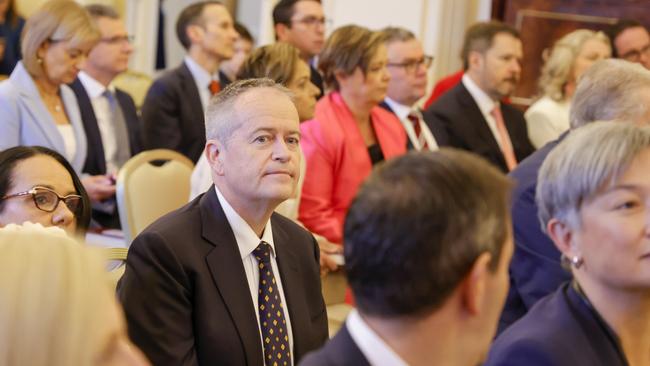
Chalmers reverted to his argument that the cause for underlying debt, budget deficits, a spike in inflation, rising interest rates and stagnant wages predated the pandemic and said there were “really serious constraints” on the economy. Facing demands to alleviate cost-of-living pressures, having already ruled out extending the Coalition’s halving of the petrol excise or increasing the JobSeeker allowance, Chalmers said there was no quick fix for the huge jump in gas prices.
“There is no simple mechanism that would immediately take this pressure off the gas price,” the Treasurer said.
Bowen concurred as he dismissed calls for the Albanese government to “pull the trigger” on the mechanism that would limit gas exports and domestic prices, saying it couldn’t come into effect, even if implemented, until January 1 next year.
“It cannot come into force until January 1 next year, even if it was pulled today. It is not a short-term answer,” he said on Thursday as temperatures dropped again and electricity retailers warned they would have to shut down even with a price cap on wholesale gas.
On carbon-emission targets, Bowen has already dug in ahead of demands from the Greens and Climate 200 MPs saying Labor’s target for 2030 will not change.
On the spending side, former Labor leader Bill Shorten has been handed the daunting task of managing the NDIS. During the campaign, Albanese repeatedly cited the NDIS as one of the great Labor reforms, giving credit to both former prime minister Julia Gillard and Shorten.
Albanese attacked the Coalition for saying the NDIS was unsustainable and vowed Labor would defend the scheme. Before the election, the Labor leadership did not pay as much attention to the NDIS in parliament and used particular cases of individual families having payments cut as its main political weapon. Even the grand policy failure of the so-called robodebt debt collection system was not exploited in a wider sense.
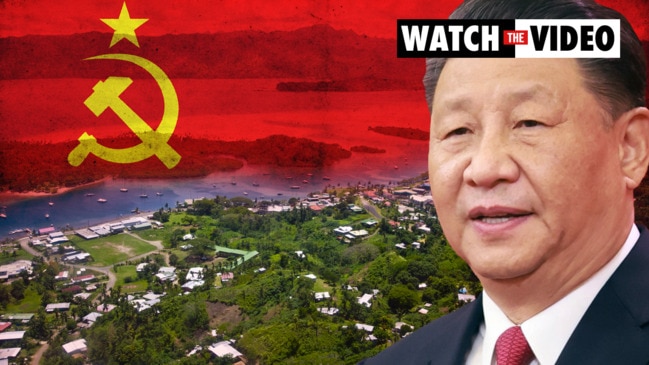
Yet Shorten, who faces the reality that the NDIS, designed to look after the most vulnerable in society and with a rushed implementation for political reasons, is now “bigger than Medicare”.
Labor has used the personal stories of family funds being cut for more than a year and also during the election campaign and will hold a royal commission on robodebt yet doesn’t talk about the need for more efficient spending in the NDIS as part of its review.
Potential party leadership rival Tanya Plibersek, from Albanese’s own NSW Left faction, has been given not only a demotion after years as Labor’s opposition education spokeswoman but also a politically poisonous job in managing water.
With Chalmers already identifying a $450m saving in delaying the Hells Gate dam in northern Queensland, floods and the never-ending fights between Queensland, NSW, Victoria and South Australia over sharing Australia’s biggest inland waterways for drinking water, industrial use, farming and environmental flows, Plibersek’s experience is likely to be environmentally hazardous.
Despite the priority given to the cultural promise of adopting the Uluru Statement from the Heart, an Indigenous voice to parliament and an Australian republic, Albanese has been more careful not to set a first-term deadline for a referendum on either issue – wary of the damage that can be done to the concept if it is poorly handled and becomes divisive.
But no matter how carefully Labor manages in government, there are already huge expectations that have been positively created and also negatively inspired.


